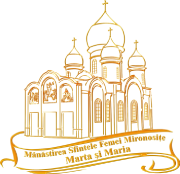St Apostle Andrew, the First-called
Andrew the Apostle (Greek: Ἀνδρέας Andreas), also known as Saint Andrew, was a Christian Apostle and the brother of Saint Peter.[4] He is referred to in the Orthodox tradition as the First-Called (Greek: Πρωτόκλητος, Prōtoklētos).
LIFE
From the fourth Gospel we learn that Andrew was a disciple of the Baptist, whose testimony first led him and John the Evangelist to follow Jesus (John 1:35-40). Andrew at once recognized Jesus as the Messiah, and hastened to introduce Him to his brother, Peter (John 1:41). Thenceforth the two brothers were Disciples of Christ. On a subsequent occasion, prior to the final call to the apostolate, they were called to a closer companionship, and then they left all things to follow Jesus (Luke 5:11; Matthew 4:19-20; Mark 1:17-18).
Finally Andrew was chosen to be one of the Twelve; and in the various lists of Apostles given in the New Testament (Matthew 10:2-4); Mark 3:16-19; Luke 6:14-16; Acts 1:13) he is always numbered among the first four.
Andrew the Apostle, also known as Saint Andrew, son of Jonah or John and elder brother of Simon Peter, was born in Bethsaida of Galilee. In the Orthodox tradition he is called the “Protoclete” or the First-Called because he was the very first disciple of Christ and the first Christian Apostle.
Being also a devoted follower of John the Baptist, Andrew went through life leading people to Jesus, both before and after the Crucifixion. He undertook a number of missionary journeys in Asia Minor and Greece, and possibly areas in modern Russia and Poland. Martyred on a saltire cross in Peloponnese at the city of Patras in Greece, he is said to have preached for two days from it.
As tradition puts it, at that supreme moment, like his brother Peter, he asked to be nailed to a cross different from the Cross of Jesus.
In his case it was a diagonal or X-shaped cross, which has thus come to be known as St Andrew's cross.
This is what the Apostle is claimed to have said on that occasion, according to an ancient story (which dates back to the beginning of the sixth century), entitled The Passion of Andrew:
The name Andrew (Greek: manly, brave, from Andreia, manhood, valour), like other Greek names, appears to have been common among the Jews, Christians, and other Hellenized people of the region. No Hebrew or Aramaic name is recorded for him. According to Orthodox tradition, the apostolic successor to Saint Andrew is Patriarch Bartholomew of Constantinople.
Most references to Andrew in the New Testament simply include him on a list of the Twelve Apostles, or group him with his brother, Simon Peter. But he appears acting as an individual three times in the Gospel of John. When a number of Greeks (perhaps simply Greek-speaking Jews) wish to speak with Jesus, they approach Philip, who tells Andrew, and the two of them tell Jesus (Jn. 12:20-22). Before Jesus feeds the Five Thousand, it is Andrew who says, Here is a lad with five barley loaves and two fish. (Jn. 6:8f) And the first two disciples whom John reports as attaching themselves to Jesus (Jn. 1:35-42) are Andrew and another disciple (whom John does not name, but who is commonly supposed to be John himself - John never mentions himself by name, a widespread literary convention). Having met Jesus, Andrew then finds his brother Simon and brings him to Jesus. Thus, on each occasion when he is mentioned as an individual, it is because he is instrumental in bringing others to meet the Saviour. In the Episcopal Church, the Fellowship of Saint Andrew is devoted to encouraging personal evangelism, and the bringing of one's friends and colleagues to knowledge of the Gospel of Christ.
RELICS
Several centuries after the death of Andrew, some of his relics were brought by a missionary named Rule to Scotland.
In 345, Emperor Constantine the Great decided to translate Andrew’s bones from Patras in Greece to Constantinople. Saint Regulus of Scotland was instructed by an angel to take many of these relics to the far northwest. He was eventually told to stop on the Fife coast of Scotland, where he founded the settlement of Saint Andrew. For this reason Andrew is considered now a national saint and the patron of Scotland.
Besides Scotland, relics of the Apostle Andrew are kept at the Basilica of St Andrew in Patras in Greece and the Church of St Andrew and St Albert, Warsaw in Poland. There are also numerous smaller reliquaries throughout the world.
Andrew is the patron saint of several countries and cities including: Barbados, Romania, Russia, Ukraine, Amalfi in Italy, Esgueira in Portugal, Luqa in Malta, Paranaque in the Philippines and Patras in Greece. He was also the patron saint of Prussia and of the Order of the Golden Fleece. He is considered the founder and the first bishop of the Church of Byzantium and is consequently the patron saint of the Ecumenical Patriarchate of Constantinople.
Hymns
Troparion (Tone 4)
Andrew, first-called of the Apostles
and brother of the foremost disciple,
entreat the Master of all
to grant peace to the world
and to our souls great mercy.
Kontakion (Tone 2)
Let us praise Andrew, the herald of God,
the namesake of courage,
the first-called of the Savior's disciples
and the brother of Peter.
As he once called to his brother, he now cries out to us:
"Come, for we have found the One whom the world desires!"


